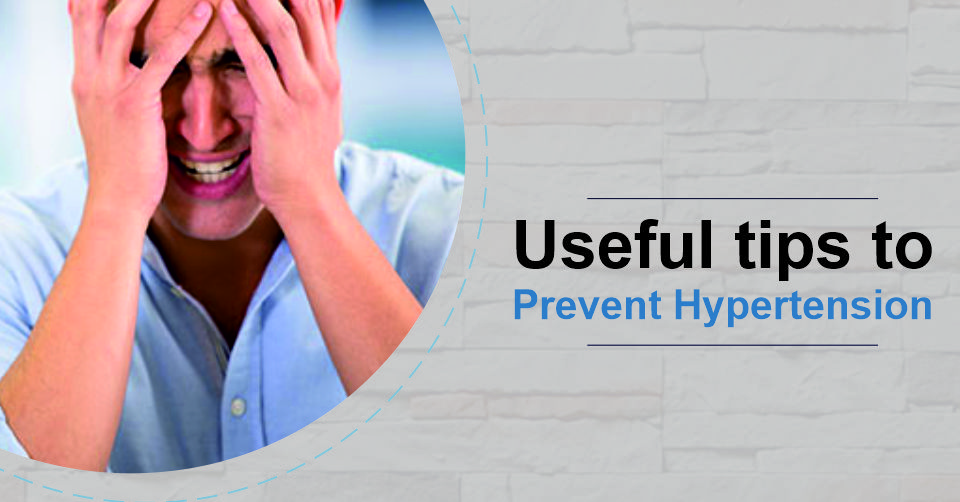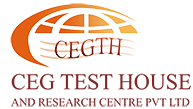Tips to Prevent Hypertension
Author– Dr. Neha Lohia, Manager (Business Development Strategies and CRM)

Hypertension is a significant risk factor for cardiovascular disease (CVD) or coronary artery disease and stroke, a leading cause of death and disability worldwide. This also exerts a staggering burden on human quality of life and health care system resources through an increase in the rate of mortality and risk of CVD.
Almost one-quarter of the global adult population is suffering from hypertension which accounts for nearly one billion. The worldwide prevalence of hypertension is expected to increase by 60% by 2025. Hence, the primary prevention of hypertension has become a global public health challenge.
Tips to prevent Hypertension
Any modification done in your lifestyle should be with prior consultation of your health care provider. Let us look at some of the tips that might help you in controlling or preventing hypertension with respect to lifestyle interventions
Lose weight
One of the most effective means of reducing elevated blood pressure is to lose your extra weight. Being overweight is very closely connected to hypertension, especially if your body mass index (BMI) is 25 or more. Further, excess upper body fat is also associated with hypertension, diabetes, increased blood lipid levels, and coronary heart disease.
Tips for Weight Loss:
- Try to maintain a food diary to track exactly what and how much you eat.
- Choose wisely food that is low in saturated fat, trans fat, cholesterol, and refined sugar.
- Try to consume at least 5 servings of fruits and vegetables daily.
- Keep an eye on your portion sizes as well. For example, one-quarter of your plate should consist of lean protein, i.e. palm-size portion, another quarter should consist of unrefined grain, i.e. fist-size portion and one half of the plate should be filled with a variety of colorful vegetables.
- Never skip your meals. You should consume three meals a day, in addition to snacks which is also an essential tip for weight management.
- Also, keep a note of your fiber content. You should consume around 25 to 30 g of fiber each day.
- Drink plenty of water. Try to include about 6 to 8 glasses of fluid daily.
- You should set realistic goals. Weight loss should be gradual.
You can always consult a registered and qualified dietitian who can help you evaluate your current eating habits and recommend strategies to help you plan your weight loss.
Limit Alcohol Intake
Drinking too much alcohol can increase hypertension and will also make it difficult to treat high blood pressure. If you are suffering from hypertension, you should limit your alcohol intake to no more than two alcoholic drinks per day.
Read Nutrition Labels
While doing your grocery shopping, you should be active and alert while choosing processed foods and avoid choosing high sodium foods. This can be achieved by reading the nutrition labels carefully. The American Heart Association has listed salty six common foods where a high amount of sodium may be lurking: bread and rolls, cold cuts and cured meats, pizza, poultry, soup, and sandwiches.
Exercise Regularly

You should always engage yourself in some sort of physical activity exercise which will definitely make a difference in your health. Exercise is one of the best things you can do to lower your hypertension.
Try to aim for at least half an hour five days a week. You can do some kind of dancing or biking or cycling or taking brisk walks or running or any other activity which you would love to do.
Limit Sodium (Salt) Intake
Controlling and limiting the amount of sodium in the diet can lower hypertension. The intake of sodium should be limited to not more than 2400 mg per day and further set a goal of lowering it to 1500 mg per day. The sodium is mostly found in table salt and many other foods that are consumed such as preserved foods, canned foods, cheese, snacks, and luncheon meats.
Increase Intake of Potassium Rich Foods
Potassium is an important mineral. The main function is to help the body to get rid of sodium and ease pressure on your blood vessels. Lower blood potassium levels will also increase the risk of hypertension. Therefore, include potassium-rich foods in your diet which may help to manage high blood pressure. High potassium foods include salt substitutes, bananas, dried fruits, skim milk, coffee, fruits and vegetables, nuts and seeds, and potatoes.
Manage Stress
Stress is an important contributing factor to high blood pressure. When you are in stress, your body is in a constant fight or flight mode. This indicates that the heart rate is fast and blood vessels are constricted. Studies have reported that reducing stress can help lower blood pressure.
Consume Calcium-Rich Foods
People with low calcium intake often suffer from hypertension. Diet rich in calcium is linked to healthy blood pressure levels. You can get calcium through dark green leafy vegetables and tofu as well as dairy products.
Take Medications for Hypertension as Prescribed
Your doctor may prescribe some medications to help to achieve your blood pressure goals after proper examination and analyzing other risk factors. You should follow your doctor’s advice about medications.
Conclusion
Hypertension affects a large proportion of the world population. While medications are one way to treat the condition, there are other natural techniques as well that can help. Controlling your blood pressure through the tips mentioned in this article might help you to lower the risk of heart disease.
Stay Fit, Healthy, and Happy!!!
References
- https://www.ncbi.nlm.nih.gov/pmc/articles/PMC3901083/pdf/nihms526172.pdf
- https://www.ncbi.nlm.nih.gov/pmc/articles/PMC5575221/pdf/AMS-13-30182.pdf
- https://www.ncbi.nlm.nih.gov/pmc/articles/PMC4366416/
- https://www.cdc.gov/bloodpressure/healthy_living.htm
- https://www.health.harvard.edu/staying-healthy/6-simple-tips-to-reduce-your-blood-pressure
- https://www.ncbi.nlm.nih.gov/pmc/articles/PMC2991739/pdf/bjgp60-879.pdf
- https://www.ncbi.nlm.nih.gov/books/NBK279237/?report=printable
